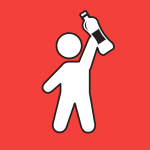It feels like everyone is always talking about protein, especially when it comes to sports and recovery! Yet, does protein live up to this hype? How much protein do we really need and where do we get protein from? Let’s see if we can answer these questions.
What are proteins?
Proteins are made up of amino acids – sometimes it is helpful to think of them as building bricks. There are 20 amino acids (building bricks) which can be put together to make many types of protein structures – just as building bricks can be placed together to make any manner of different buildings. When we eat protein, our bodies break down proteins in to individual amino acids which, once absorbed in to our bodies, are used to make new proteins in order to build and repair vital body substances and structures such as our muscles.
While there are 20 amino acids, there are some which can be made by the human body (non-essential) and those that cannot (essential). Because we cannot make essential amino acids, they must be supplied by food and drinks we consume. Foods that contain all the essential amino acids are often referred to as quality proteins
Does protein live up to its hype?
Well the best answer is yes and no.
YES – 👍 We all need protein for growth and repair of our muscles, tissues as well as for other key substance production (such as hormones) – So, absolutely it is vital! As we cannot store protein in the same way we can store energy it is important that we take in protein every day.
NO – 👎 Lucky for us, most Australians already get plenty of protein from everyday food and drinks. In Australia there are many sources of protein in our diet and quality proteins are usually affordable and easy to come by, therefore protein deficiencies are rare.
So, while protein is important, it often gets more press and attention than it should.
How much protein do we really need?
Well this, as is the same for energy, will be different for each and every one of us.
We all need more protein at times in our lives when we are growing, pregnant or breastfeeding or when we are recovering from illness or surgery, so we need to keep this in mind.
It is recommended that around 15-20% of total energy intake each day is from protein.
The best thing to do is to try and eat quality proteins and spread them evenly throughout the day. This means trying to have some protein at breakfast, lunch and dinner as well as including some proteins at snacks if we are including these in our day.
Where do we get protein from?
Sources of protein include the following:
-Meats such as chicken, beef, pork and fish
-Eggs, nuts and legumes (such as chickpeas, lentils and cannellini beans)
-Dairy products such as milk, cheese and yoghurt
-Seeds and nuts
-Soy products such as tofu
-Some grains and cereals (but most are not high in protein)
Animal products such as chicken, beef and fish are quality proteins (contain all the essential amino acids) while most protein plant products (except for soy, quinoa and amaranth seed) lack at least one essential amino acid.
When you chose to eat protein foods which do not have all the essential amino acids, try to couple them with other protein foods to ensure you are getting all the essential amino acids.
Do I need a protein supplement?
Given most Australians easily meet their protein requirements from normal everyday foods, it is unlikely you will need a protein supplement. This is the case for children, adolescents and adults. Even those who exercise strenuously with the aim to build muscle usually do not need to have protein in the form of a nutrition supplement as long as their diet is healthy and well balanced.
Should I eat protein after exercise?
Soon after you finish exercising (0-2hours) try to have a meal or snack which is a good source of protein. While there is no one ‘best’ recovery snack, dairy foods such as flavoured milk, smoothies or fruit yoghurt are a great option as they provide carbohydrate, fluid and electrolytes. Other options might be a lean meat and salad sandwich or a tin of tuna on crackers.
Take home messages
-We all need protein for growth and repair, protein is a key building block for our muscles.
-Aim for a regular spread of high-quality protein sources throughout the day.
-Specialised supplements are usually not necessary.
-Like carbohydrate, protein is important for recovery after training and competition.
-If you are worried you aren’t getting enough protein in your diet it is a good idea to consider consulting a dietitian.
References
- Nutrient Reference Values (NRV)
https://www.nrv.gov.au/nutrients/protein - Dietitians Association of Australia
https://daa.asn.au/smart-eating-for-you/smart-eating-fast-facts/nourishing-nutrients/carbohydrates-what-you-need-to-know/ - Sports Dietitians Australia
https://www.sportsdietitians.com.au/factsheets/ - Australian Institute of Sport
https://www.sportaus.gov.au/ais/nutrition/resources - Better Health Channel
https://www.betterhealth.vic.gov.au/health/healthyliving/protein




